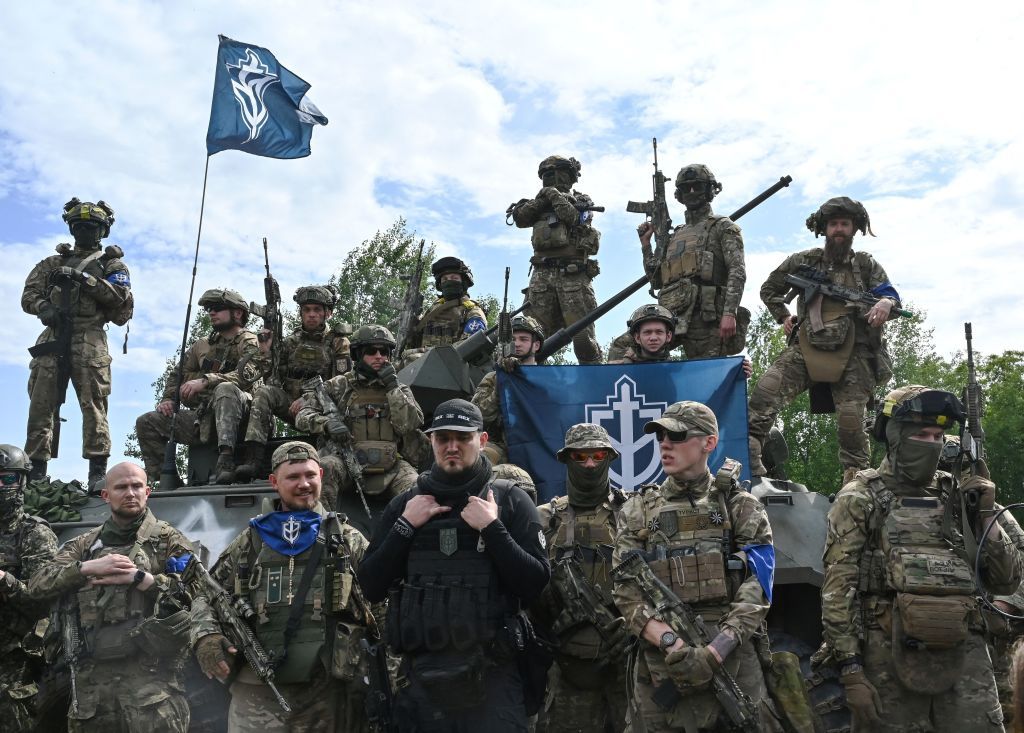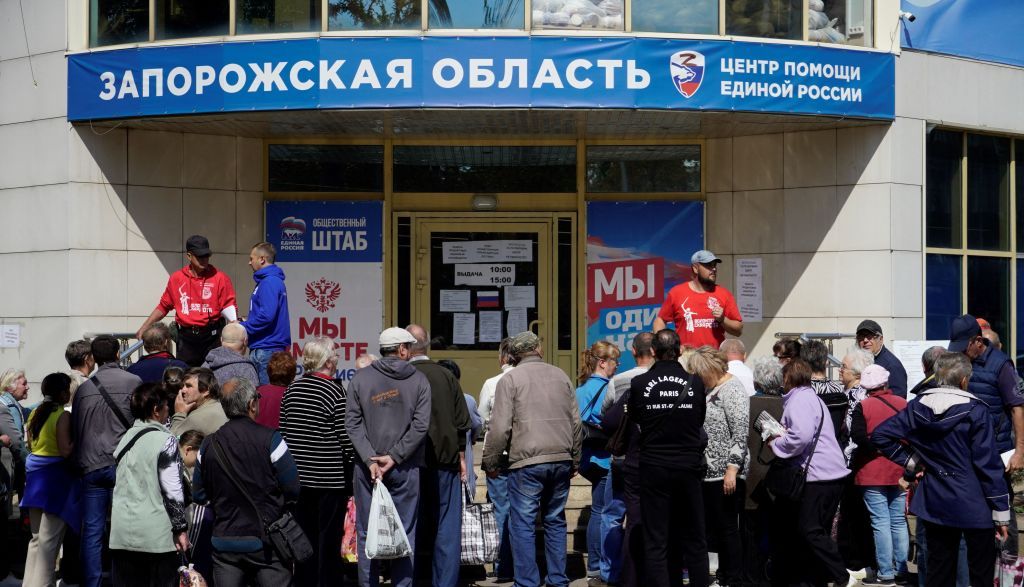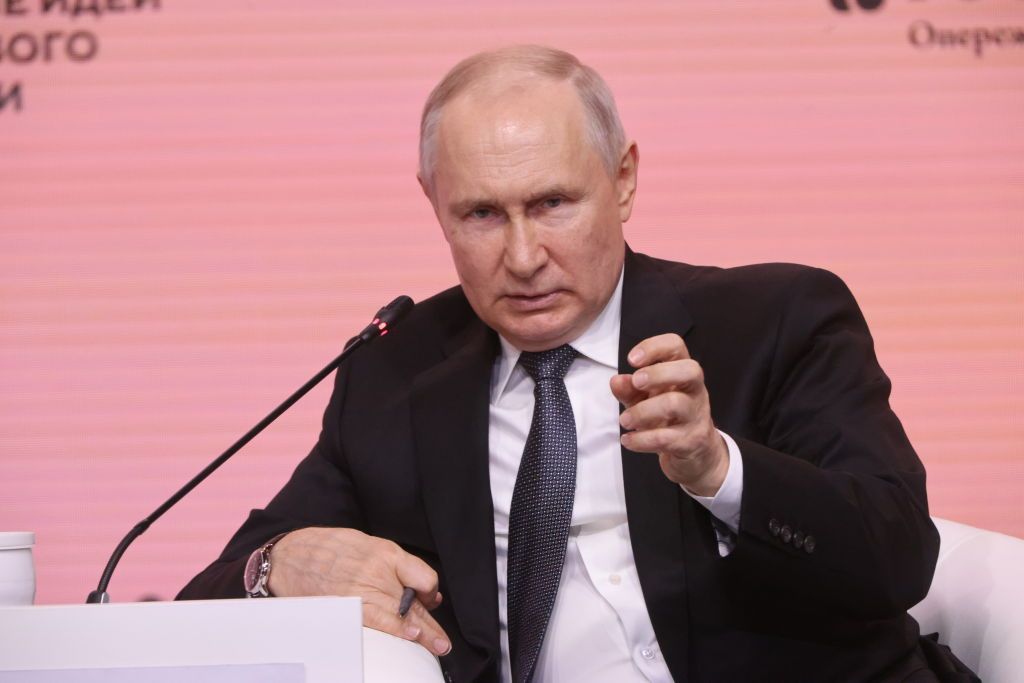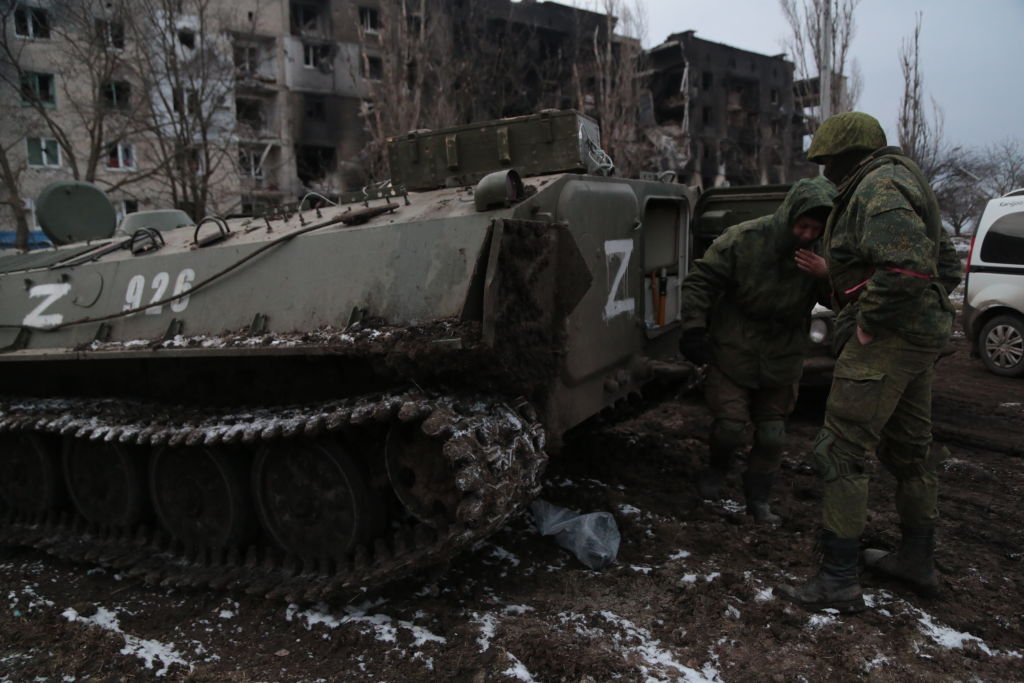Russia holds sham 'elections' in occupied Ukrainian territory

Voting is underway in sham "regional elections" in occupied Ukrainian territories as Russia seeks to consolidate its control over these regions.
The illegal so-called elections in the occupied territories come nearly a year after Russia held sham annexation referendums in Zaporizhzhia, Kherson, Luhansk, and Donetsk oblasts, which Moscow only partially controls, and nine years after Russia illegally annexed Ukraine’s Crimean Peninsula.
The so-called voting began on Aug. 31 and is scheduled to end on Sept. 10.
The sham elections have been widely condemned both in Ukraine and abroad, with officials saying the results will be rigged in Russia’s favor.
Foreign Minister Dmytro Kuleba said “Russia’s sham elections in the temporarily occupied territories are null and void,” adding that anyone involved in the voting will be held accountable.
U.S. Secretary of State Antony Blinken called the voting a “blatant disregard for UN Charter principles,” and that Washington will “never recognize the Russian Federation’s claims to any of Ukraine’s sovereign territory.”
“The Kremlin hopes these pre-determined, fabricated results will strengthen Russia’s illegitimate claims to the parts of Ukraine it occupies, but this is nothing more than a propaganda exercise,” Blinken said in a statement.
According to Oleksandr Demchenko, a consultant at Come Back Alive, a Ukrainian nonprofit organization that also works closely with the military, "Russia is conducting these sham elections to normalize its system of governance (in these areas).”
“Moscow seeks to increase control over the local population and identify loyal and disloyal people,” he said.
Experts and observers have also warned that the voting could pave the way for the forced mobilization of Ukrainian citizens to fight on Russia’s side in its war against Ukraine.

Faking the vote
Russia is asking millions of Ukrainians to vote in what it is calling "elections" for regional councils and municipalities of the four illegally annexed territories and parliamentary by-elections in Crimea.
All of the Moscow-installed proxies are running with Putin’s endorsement and under the Kremlin-controlled United Russia party, according to Russian media reports.
During his 23-year reign, Russian President Vladimir Putin has managed to take control of the vote inside Russia and in occupied eastern Ukraine and Crimea. Experts believe the ruling party, United Russia, will emerge victorious in the 2023 voting in occupied territories.

"Russia has concealed the list of candidates, citing security reasons. Russian troops deployed to these regions are also allowed to vote. The number and locations are classified. It is a black electoral hole that will allow Russia to get any result," said Demchenko, who does analyses on the Russian-occupied territories.
Russia is also using an electronic voting system, previously criticized inside Russia, that will allow the Kremlin to decide the outcome of the "elections" in the occupied Ukrainian regions.
Russia set up the electronic voting system through a nominally secure web portal. Alexei Navalny, a Putin critic currently in prison, repeatedly claimed that Russian officials have used the tool to fabricate results by breaching the electronic counting.

“All the vote results are known before the elections regardless of the count. United Russia candidates will receive 70-80% with a pitiful outcome for the rest if they (even) exist,” a Russian analyst told the Kyiv Independent. The analyst spoke on condition of anonymity due to security reasons as he currently lives in Russia.
Despite the ongoing war and the proximity of the occupied regions to the front line, it’s still important for the Kremlin “to stage artificial normality in a place with a bizarre situation,” the analyst said.
“Russian authorities do not hesitate in situations where fiction degenerates into absurdity. They do not have full control over these regions, but that doesn't stop them from pretending that these are ordinary Russian regions where nothing is happening,” he said.
The sham vote is also technically illegal even under Russian law, as these "elections" are being held during the martial law Putin declared in these regions in late October and that is still in effect.
Russia's Central Election Commission also recently postponed a vote in the Shebekino area of the Belgorod region, citing border shelling attributed to Ukraine.
‘Binding them with blood:’ Life under Russian control
The sham elections will likely lead to even more misery for the millions of Ukrainians currently living under Russian occupation, experts and human rights defenders warn.
Russia has gone to lengths to count the people who have remained in the occupied territories by forcing Ukrainians to obtain Russian citizenship and register with various Russian systems that allow residents to receive critical aid or maintain their property rights.
Demchenko said Russia will cross reference those lists with voter attendance in order to gauge the loyalty of the local population.
“(Russians) will verify if the locals living there have voted. Absence at the polling stations may signify a certain disloyalty, leading to potential extra scrutiny (from the Russian security services),” he said, adding that the voting is also a population census for Russia.
When Russia held a sham referendum last fall, Russian soldiers brought mobile polling stations door-to-door, said Alyona Luneva, advocacy director at Ukraine’s Zmina human rights center. She believes “Russian troops will again force locals to vote at gunpoint” this year.
Photographs published by Reuters recently of the 2023 voting show polling stations set up on the trunks of cars on the side of the road in Mariupol. Other photos published by Russia’s Central Election Commission show people voting while armed men stand guard.
Similar photos published last year during the sham referendums on annexation showed people voting while armed men stood nearby.
Consolidating control over the occupied territories with a front line spanning over 1,200-kilometers could pave the wave to a mobilization campaign of locals in Kherson and Zaporizhzhia oblasts, experts told the Kyiv Independent.
Russia has forcibly conscripted Ukrainians in occupied Donetsk and Luhansk oblasts and Crimea for its war against Ukraine since February 2022, and thousands are believed to have been killed or wounded in action fighting against their own people, according to the Ukrainian military’s National Resistance Center.
“This is a consistent Kremlin practice - to involve as many locals as possible in combat actions against Ukraine. To bind them with blood, as they say, causing locals to suffer losses and to erode loyalty to Ukraine within their families," said Demchenko.
Forced mobilization in occupied territory is a war crime, according to the Rome Statute of the International Criminal Court. Russia originally signed the statute in 2000, but never ratified the treaty. In 2016, the Kremlin formally withdrew its signature.
Collaborating with Russia
Ukrainian authorities and human rights defenders have repeatedly called on Ukrainians living in the occupied regions to avoid Russian elections.
Those who run for office, work in the Russian electoral commissions, or campaign for the sham vote may face criminal prosecution in Ukraine, officials say.
“While there is no legal liability under Ukraine’s Criminal Code for participating in the elections (under occupation), there is accountability for organizing sham elections and calling for participation. It’s high treason if proven in courts," Luneva told the Kyiv Independent.
Ukraine’s Security Service (SBU) reported it had identified over 3,500 collaborators and Russian election officials organizing the 2023 voting in the occupied territories. Multiple charges have been filed against them.
“We see verdicts in the court records after past elections that Russia conducted in the occupied territories. All related to organizing sham elections,” Luneva said, adding that some collaborators have been convicted to up to 10 years in prison.
Nonetheless, since Ukrainian justice has yet to reach most Russian collaborators, they are being hunted by intelligence agencies and resistance forces.
“Those who organize sham elections, set up polling stations or run, understand they become legitimate targets for Ukrainian forces,” said Demchenko.















